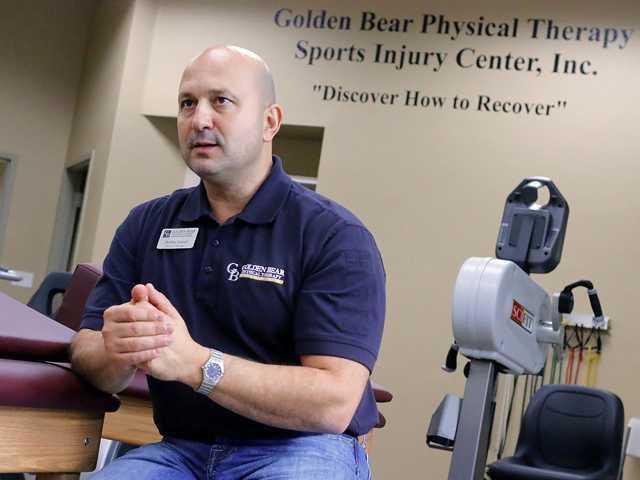Pain Counseling and Substance Use

Pain is a universal human experience. Whether it’s the occasional headache, a sprained ankle, or a chronic condition, we all encounter pain at some point in our lives. For many, pain management often involves reaching for over-the-counter pain relievers or, in more severe cases, prescription opioids. However, the opioid crisis that has swept across the globe has brought to light the need for alternative approaches to pain management. In this blog post, we’ll explore the role of pain counseling in helping individuals manage their pain without resorting to opioids.
The Opioid Epidemic: A Looming Crisis
The opioid epidemic is a public health emergency characterized by the widespread misuse of prescription opioids and illicit drugs like heroin. It has resulted in countless overdoses, shattered families, and strained healthcare systems. Prescription opioids, such as oxycodone, hydrocodone, and fentanyl, were initially intended for the management of severe pain, particularly in cases like post-surgery recovery or cancer-related pain. However, their high potential for misuse and addiction has led to devastating consequences.
Pain Management and the Opioid Dilemma
Historically, opioids have been a primary option for pain management due to their ability to provide rapid relief. But the opioid crisis has made it evident that relying solely on these medications is unsustainable and dangerous. Here’s why:
- Risk of Addiction: Opioids are highly addictive. Even when prescribed and used as directed, individuals can develop a dependency, leading to addiction and overdose.
- Side Effects: Opioids often come with side effects, including drowsiness, constipation, nausea, and impaired cognitive function. These side effects can negatively impact a person’s daily life.
- Tolerance and Escalation: Over time, individuals may build tolerance to opioids, requiring higher doses to achieve the same level of pain relief. This can increase the risk of overdose.
- Withdrawal: When trying to reduce or stop opioid use, individuals may experience withdrawal symptoms, making it challenging to quit.

The Role of Pain Counseling
Pain counseling, also known as pain psychology or pain therapy, offers a different approach to pain management. It focuses on the emotional and psychological aspects of pain, acknowledging that pain isn’t merely a physical sensation but a complex experience influenced by thoughts, emotions, and behavior.
Here’s how pain counseling can help individuals manage pain without opioids:
1. Cognitive Behavioral Therapy (CBT)
CBT is a common approach used in pain counseling. It helps individuals identify and change unhelpful thought patterns and behaviors related to pain. By addressing negative beliefs about pain and teaching coping strategies, CBT can reduce pain perception and improve overall well-being.
2. Mindfulness and Relaxation Techniques
Pain counseling often incorporates mindfulness and relaxation exercises to help individuals manage pain. Mindfulness involves being present in the moment and accepting pain without judgment. By cultivating mindfulness, individuals can reduce stress and improve their ability to cope with pain.
3. Pain Education
Understanding pain is a crucial aspect of pain counseling. Many individuals have misconceptions about the nature of pain, which can lead to increased suffering. Pain education helps individuals develop a more accurate understanding of their pain, reducing fear and anxiety.
4. Behavioral Interventions
Pain counselors may introduce behavioral interventions to help individuals modify their responses to pain. This can include pacing activities, setting achievable goals, and gradually increasing physical activity levels.
5. Coping Skills
Pain counseling equips individuals with a toolbox of coping skills to manage pain effectively. These skills may include deep breathing exercises, guided imagery, and problem-solving techniques.
6. Emotional Support
Pain can take a toll on a person’s emotional well-being. Pain counselors provide emotional support, allowing individuals to express their feelings and concerns in a safe and nonjudgmental environment.
The Advantages of Pain Counseling
- Non-Addictive: Pain counseling does not involve the use of opioids or any potentially addictive substances. This reduces the risk of developing a dependency or addiction.
- Holistic Approach: Pain counseling considers the whole person, addressing both physical and emotional aspects of pain. This holistic approach can lead to more comprehensive and lasting pain relief.
- Empowerment: Pain counseling empowers individuals to take an active role in their pain management. By learning coping strategies and self-help techniques, they regain a sense of control over their lives.
- Improved Quality of Life: Many individuals who engage in pain counseling report an improved quality of life, even when their pain levels remain consistent. This suggests that managing pain is not solely about reducing its intensity but also about enhancing one’s ability to cope with it.
Conclusion
The opioid epidemic has underscored the need for alternative approaches to pain management, particularly for individuals dealing with chronic pain with these tips from MirrorReview. Pain counseling offers a valuable and non-addictive solution to help individuals manage their pain effectively. By addressing the psychological and emotional aspects of pain and providing individuals with coping strategies, pain counseling can contribute to improved pain relief, enhanced quality of life, and a safer, healthier approach to managing pain without the risks associated with opioids. If you or someone you know is struggling with chronic pain, consider exploring pain counseling as a viable and effective option for relief.


 The Psychology of Branding
The Psychology of Branding  Nosboss Cream Chargers for Melbourne Customers
Nosboss Cream Chargers for Melbourne Customers  How to Use Your Air Conditioner
How to Use Your Air Conditioner  Yemeni Language in Preserving Cultural Heritage
Yemeni Language in Preserving Cultural Heritage  Running Seasonal Advertising Campaigns
Running Seasonal Advertising Campaigns  Omega-3 for Reducing the Risk of Stroke
Omega-3 for Reducing the Risk of Stroke